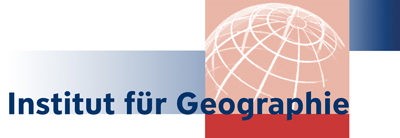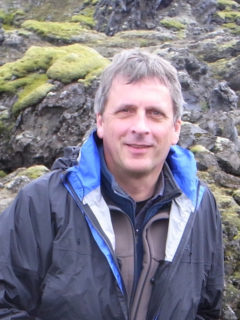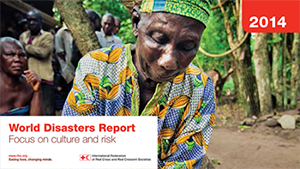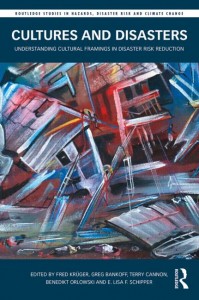Fred Krüger
Prof. Dr. Fred Krüger
Current research and teaching activities focus on interlinkages between culture (in its broadest and non-essentialistic sense), human action, the environment, risk and disasters. COVLess, funded by the Volkswagen Foundation, explores the impacts of the Covid-19 pandemic on urban food security and social cohesion in Bangkok and Singapore. It looks at potentials and opportunities to enhance creative and more socially inclusive food initiatives in the wake of the Covid-19 crisis and assesses lessons learnt in the context of citizen-oriented solutions for more resilient and ecologically and socially sound urban food systems. CHIDA, funded by the BMBF, investigates into risks and disaster-prone urban lifeworlds and livelihoods in Malawi and South Africa and assesses the potentials of Nature-based Solutions for a more sustainable and just urban development. AfriCity, a major BMBF/DAAD funded project, looks into linkages between adaptation, livelihoods, risks and the right to the city in Sub-Saharan African cities. LIPSINDAR is a BMBF-funded networking project with a focus on Dar es Salaam (Tanzania). JustUrban(Plus) analyses liveability, rights-based issues, risks and urban green infrastructure in Bangkok and Singapore. In the past, research projects funded by the German Research Foundation (DFG) investigated into the impact of HIV/AIDS on human livelihoods and society in Botswana. Smaller-scale studies included „Urban Coolture – Why some urban places are hip and others are not“. Other past third-party funded research activities in the context of the „Global South“ included involvement in the international research initiative on „Urbanisation and Its Impact on the Use of Natural Resources in Africa“ (LUNA) funded by the Volkswagen Foundation, and also involved urban planning issues, the festivalisation of urban governance, social vulnerability patterns, and drought management and food security in southern Africa.
He is a member of the board of directors of the Institute of Geography. In the past, he held positions as Head of the Department of Geography and Geosciences, as Vice Dean of the Faculty of Sciences, and as Dean of the former Faculty of Natural Sciences III.
World Disasters Report 2014 – Culture and Risk
Most people who live in places that are exposed to serious hazards are aware of the risks they face, including earthquakes, tropical cyclones, tsunami, volcanic eruptions, floods, landslides and droughts. Yet they still live there because, to earn their living, they need to or have no alternative. Culture in its broadest sense, including experiences, everyday routines, attitudes, actions and beliefs, enables people to live with risks and make sense of their lives in dangerous places. Sometimes, though, unequal power relations are also part of culture, and those who have little influence must inevitably cope with threatening environments.
The 2014 World Disasters Report – Focus on culture and risk, from the International Federation of the Red Cross and Red Crescent Societies (IFRC), aims to bring these cultural issues into the open for discussion so they are better incorporated into Disaster Risk Reduction (DRR) and Climate Change Adaptation (CCA).
The report examines why people choose to live in hazard-prone locations, and how culture, beliefs, norms, attitudes, behaviours, practices or actions enable them to live with the risks they face. It also looks at the organizational culture of agencies working in the fields of DRR and CCA, and challenges the widespread faith in community-based activities. Finally, the report indicates starting points for organizations to better align their actions with the way people think and act.
Published annually since 1993, the World Disasters Report brings together the latest trends, facts and analysis of contemporary catastrophes and their effect on vulnerable populations worldwide. Initiated by the IFRC, it convenes eminent researchers, authors and development and humanitarian aid practitioners to highlight the most vital emerging issues and trends on a yearly basis. The World Disasters Report is IFRC’s flagship publication and a key resource for the aid sector. The Editors and Lead Authors of the 2014 World Disasters Report were Terry Cannon, Lisa Schipper, Greg Bankoff and Fred Krueger.
This list contains selected publications only; those before 1994 have been entirely omitted.
- Dürre, Einkommenstransfers und Verstädterung in Botswana. Geographische Rundschau, Jg. 46, Heft 10, Braunschweig, 1994. S. 562-569.
- Urbanization and Vulnerable Urban Groups in Gaborone/Botswana. GeoJournal, 34.3, Dordrecht, Boston, London, 1994. S. 287-293.
- Deutsche Stadtplanung im Umbruch? Die Bebauung des Freiburger Rieselfeldes als Ausdruck einer neuen Planungsphilosophie. Regio Basiliensis, 35. Jg., Heft 3, Basel, 1994. S. 161 – 170.
- Überlebenssicherung in Städten Botswanas. Zeitschrift für Wirtschaftsgeographie, Jg. 39. Heft 1, Frankfurt a. M., 1995. S. 14-27.
- Der Partizipationsbegriff in der geographischen Entwicklungsforschung: Versuch einer Standortbestimmung. Geographische Zeitschrift, Heft 1, 1996. S. 43 – 53. (mit Beate Lohnert)
- Urbanisierung und Verwundbarkeit in Botswana
Sozioökonomische Prozesse in Asien und Afrika, Band 1, Pfaffenweiler, 1997. - Taking advantage of rural assets as a coping strategy for the urban poor. Environment and Urbanization, Vol. 10, No. 1, London, 1998. S. 119 – 134.
reprinted in: C. Tacoli (ed.): Rural-Urban Linkages. London, Sterling, 2006. p. 229-243. - Identity building and social transformation: the cases of Namibia and Botswana compared. GeoJournal, 46, Dordrecht, Boston, London, 1998. S. 79 – 87.
- Identitätsfindung in neuen Stadtteilen: Eigenbild – Fremdbild am Beispiel des Freiburger Stadtteils Rieselfeld. Freiburg, 1998. (mit Christoph Dittrich)
- Drought hazards and threatened livelihoods. Environmental perceptions in Botswana. In: Lohnert, B. u. Geist, H. (eds.): Coping with Changing Environments. Aldershot, 1999. S. 175 – 190.
- Urbanization, Vulnerability and Resource Management in Developing Countries. APT-Reports, No. 11, Freiburg, 2000. (with Axel Drescher, Christoph Dittrich; eds.)
- Urbanization and Polarization in Developing Countries – A Theoretical Framework. In: Drescher, A., Dittrich, Ch., Krüger, F. (eds.): Urbanization, Vulnerability and Resource Management in Developing Countries, APT-Reports, No. 11, Freiburg, 2000. S. 37 – 43. (with Christoph Dittrich)
- Urbanization and Vulnerability Patterns in Botswana. In: Drescher, A., Dittrich, Ch., Krüger, F. (eds.): Urbanization, Vulnerability and Resource Management in Developing Countries, APT-Reports, No. 11, Freiburg, 2000. S. 53 – 59.
- „Drought is all about votes!“ – Zur asynchronen Gleichzeitigkeit gesellschaftlicher Umbrüche in Botswana. In: Krüger, F., Rakelmann, G. u. Schierholz, P. (Hrsg.): Botswana – Alltagswelten im Umbruch. Münster, Hamburg, London, 2000. S. 33 – 52.
- Botswana – Alltagswelten im Umbruch
Facettes of a Changing Society. Afrikanische Studien, Bd. 14. Münster, Hamburg, London, 2000.
(mit G. Rakelmann, P. Schierholz; Hrsg.) LIT-Verlag. - Einflußfaktoren des sozialen Wandels in Botswana. In: Bähr, J. u. Jürgens, U. (Hrsg.): Transformationsprozesse im südlichen Afrika – Konsequenzen für Gesellschaft und Natur. Kieler Geographische Hefte, Band 104, Kiel, 2000. S. 49 – 62.
- Die lautlose Tragödie. Roche-Magazin, Nr. 68. Basel, 2001. S. 4 – 22. (mit Hiltrud Herbers, Saskia Bausch, Klaus Geiselhart and Volker Wulff; also published as The silent tragedy. Roche Magazine Special Edition 68 „Aids in Africa“, Basle, 2001.
- Kulturen in der Stadt. Berichte zur deutschen Landeskunde, Heft 2/3, 2001. S. 113 – 123. (mit Frank Meyer)
- Kulturen in der Stadt – Einleitung. In: DGfG / A. Mayr, M. Meurer, J. Vogt (Hrsg.): Stadt und Region – Dynamik von Lebenswelten. Leipzig, 2002. S. 321 – 323. (mit Frank Meyer)
- From Winner to Loser? Botswana´s Society under the Impact of Aids. Petermanns Geographische Mitteilungen, Heft 3, 2002. S. 50 – 59.
- Akteure im Risikomanagement: Dürre, Alltagshandeln und staatliche Intervention im südlichen Afrika. Zur Relevanz sozialwissenschaftlicher Umweltstudien für die Entwicklungspraxis. Umweltpsychologie, Heft 1, 2002. S. 92 – 99.
- Food for Cities: Urbanization – Linking Development Across the Changing Landscape. (selected chapters, in cooperation with FAO, A. Drescher and D. Iaquinta (eds.)). Rome, 2002.
- Livelihoods, Urbanization and the Rural-Urban Interface in African Growth-based Economies: The Case of Botswana. In: Sassen, S. & Marcotullio, P. (eds.): EOLSS UNESCO Encyclopedia of the Social Sciences. Oxford, 2002 (also: Online Edition 2004).
- Handlungsorientierte Entwicklungsforschung – Trends, Perspektiven, Defizite. Petermanns Geographische Mitteilungen, 147, Heft 1/2003. S. 6 – 15.
- Existenzsicherung unter Risikobedingungen – Sozialwissenschaftliche Analyseansätze zum Umgang mit Krisen, Konflikten und Katastrophen. Geographica Helvetica, Jg. 58, H. 1, 2003. S. 47 – 55. (mit Elísio Macamo)
- Risikoräume. Die Gefährdung von Lebensräumen und Lebenswelten. Praxis Geographie, H. 11, 2003. S. 4 – 9. (mit Cyrus Samimi)
- Südliches Afrika: „Land für alle“ – eine Illusion. WeltWeit, Nr. 4, 2004. S. 12 – 13. (Zugleich als: „De la terre pour tous“ – Une grande illusion. Coeur en Alerte, No.4, 2004. pp. 12 – 13.)
- Lässt sich Stadt überhaupt planen? Zur Steuerungsfähigkeit urbaner Gesellschaften. In: Blessing, W. u. Pehle, H. (Hrsg.): Die Zukunftsfähigkeit der Stadt. Erlangen, 2004. S. 265 – 294.
- Globale Einflüsse im subsaharischen Afrika? Analysen und Einsichten auf Mikro- und Mesoebene. Kieler Arbeitspapiere zur Landeskunde und Raumordnung 46, 2005. (mit U. Jürgens; Hrsg.)
- Globale Einflüsse im subsaharischen Afrika – Eine Einführung. In: s.o., S. 1 – 5. (mit U. Jürgens)
- Imagestudie Innenstadt – Image und Attraktivität der Erlanger Innenstadt: Stärken, Schwächen, Anregungen. Innenstadtentwicklung, Nr. 3, 2006 (hrsg. von der Stadt Erlangen).
- Miombo – Ökologische und soziale Veränderungen im größten Trockenwald der Erde. Geographische Rundschau, Heft 10, 2006. S. 40 – 47. (mit C. Samimi)
- Zwischen den Welten: Die San ohne Zukunft? WeltWeit, Nr. 6, 2006. S. 14 – 15. (Zugleich als: Entre deux mondes: Les San sans avenir? Coeur en Alerte, No.6, 2006. pp. 14 – 15.)
- Epidemics – Epidemien. In: Oswalt, P., Schirmel, H., Kulturstiftung des Bundes (Hrsg.): Atlas of Shrinking Cities. Berlin, 2006. pp 58- 59.
- Der Nürnberg Atlas. Köln, 2007. (mit Wolfgang Baumann, Michael Diefenbacher, Hiltrud Herbers, Dorothea Wiktorin; Hrsg.) Emons-Verlag.
- Die HIV/AIDS-Krise – Botswanas strategische Antwort als Vorbild? Geographische Rundschau, Heft 2, 2007. S. 54 – 61. (mit K. Geiselhart)
- Erklärungsansätze und Analysemodelle „mittlerer Reichweite“. In: D. Böhn u. E. Rothfuß (Hrsg.): Entwicklungsländer I (Handbuch des Geographieunterrichts, Bd 8/1), Köln, 2007. S. 73 – 79.
- Die HIV-/AIDS-Krise im südlichen Afrika: Lokale und globale Herausforderungen. In: Mächtle, B., Gebhardt, H., Schmid, H., Siegmund, A. (Hrsg.): Risiken und Sicherheit in einer globalisierten Welt. HGG-Journal 21, 2007. S. 59 – 69.
- Transforming Livelihoods: Meanings and Concepts of Drought, Coping and Risk Management in Botswana. In: Casimir, M. (ed.): Culture and the Changing Environment. Oxford, New York, 2008. p. 251 – 274. (with Andrea Grotzke)
- Children, Adolescents, and the HIV and AIDS Pandemic: Changing Inter-Generational Relationships and Intra-Family Communication Patterns. CYE, Vol. 18 No. 1 (Children and Disasters), 2008. p. 99 – 125. (PDF download) (with K. Geiselhart, T. Gwebu)
- Unsicherheit, Vertreibung, Flucht. Migration und Gewalt im subsaharischen Afrika. Geographie und Schule, Heft 177, 2009. S. 25 – 32.
- Widerspenstige Städte – Urbanes Leben und der Zwang der Normen. In: Weber, A. (Hrsg.): Städtische Normen – genormte Städte. Zur Planung und Regelhaftigkeit urbanen Lebens. Stadt in der Geschichte, Band 34. Ostfildern, 2009. S. 177 – 191.
- Entwicklung und Umwelt im südlichen Afrika – Chancen und Herausforderungen des gesellschaftlichen und ökologischen Wandels. Geographische Rundschau, Heft 6, 2010. S. 4 – 10. (mit Cyrus Samimi)
- Themenheft „Südliches Afrika“, Geographische Rundschau, Heft 6, 2010. (Moderation)
- Leben in der Krise: HIV/AIDS in Botswana aus Sicht der geographischen Risikoforschung. Ber. Naturf. Ges. Freiburg i. Br., 101, 2011. S. 83 – 96.
- Spaces of risk and cultures of resilience. HIV/AIDS and adherence in Botswana. In: D. Müller-Mahn (ed.): The Spatial Dimension of Risk. London, New York, 2013. pp. 109-123.
- “Festivalisation” of Urban Governance in South African Cities: Framing the Urban Social Sustainability of Mega-Event Driven Development from Below. In: Sustainability 2013 (5), 5225-5248. (with M. Fleischer, M. Fuhrmann, Ch. Haferburg). Open access
- Waste Management in Southern Africa. Actors, Institutions and Organisations in Mid-sized Cities in Botswana and Zambia. Erlangen, 2014. (with Christoph Haferburg; eds.). Info
- Geographies of Waste Management: An Overview. In: Krüger, F./Haferburg, Ch. (eds.): Waste Management in Southern Africa. Erlangen, 2014. pp. 1-15. (with Ch. Haferburg)
- Domestic Waste Management in Mid-sized Cities in Bostwana. In: Krüger, F./Haferburg, Ch. (eds.): Waste Management in Southern Africa. Erlangen, 2014. pp. 17-66. (with Ch. Haferburg)
- Post-World Cup effects and local regeneration strategies in Johannesburg and eThekwini. In: Haferburg, Ch./Huchzermeyer, M. (eds.): Urban Governance in Post-apartheid Cities. Urbanization of the Earth 12. Stuttgart, 2014. pp. 273-293. (with Ch. Haferburg, M. Fleischer, M. Fuhrmann)
- World Disasters Report 2014 – Culture and Risk. Geneva, 2014. (with Terry Cannon, Lisa Schipper, Greg Bankoff)
- Cultures and Disasters: Understanding Cultural Framings in Disaster Risk Reduction. London, New York, 2015. (with Greg Bankoff, Terry Cannon, Benedikt Orlowski, Lisa Schipper; eds.)
- Moderation Geographische Rundschau 67 (3) „Mittlerer Westen der USA“ (gemeinsam mit U. Gerhard)
- Der Mittlere Westen – Dynamische Veränderungen im Herzen der USA. Geographische Rundschau, Jg. 67, Heft 3, S. 4-11. (mit S. Fuchs, U. Gerhard und A. Titz)
- Magazin „Der Mittlere Westen“. Geographische Rundschau, Jg. 67, Heft 3, S. 52-57. (mit T. Sokoliuk und A. Titz)
- Environmental management and the reshaping and respacing of livelihoods in sub-Saharan Africa. African Geographical Review 2017, pp. 1-7. http://dx.doi.org/10.1080/19376812.2017.1286244 . (with C. Samimi)
- USA regional: Mythos und Alltagskulturen – der Mittlere Westen. In: Gamerith, W. / Gerhard, U. (Hrsg.): Kulturgeographie der USA. Berlin, 2017. S. 51-57. (mit A. Titz)
- Botsuana: Diamantenreichtum und HIV-Pandemie. In: Scholz, F. (Hrsg.): Länder des Südens – Fragmentierte Entwicklung und Globalisierung (Diercke Spezial). Braunschweig, 2017. S. 90-94
- Uncovering Community: Challenging an Elusive Concept in Development and Disasters Related Work. Societies, 2018 8(3), 71. https://doi.org/10.3390/soc8030071 . (with A. Titz, T. Cannon)
- Das subsaharische Afrika – Entwicklungsdynamiken, Herausforderungen, Lösungsansätze. Geographische Rundschau, Jg. 71, Heft 11/2019, S. 4-9. (mit A. Drescher, N. Louis, A. Titz)
- Infrastrukturentwicklung und das Recht auf Stadt – Das Beispiel Daressalaam. Geographische Rundschau, Jg. 71, Heft 11/2019, S. 40-41. (mit E. Munishi, N. Louis, A. Drescher)
- Moderation Geographische Rundschau 71 (11/2019) „Transformationen in Subsahara-Afrika“
- Afrikanischer Urbanismus? Brüche im Lebensalltag und das Recht auf Stadt im subsaharischen Afrika. Passauer Kontakstudium Geographie, Band 16, 2021.
- The Bus Rapid Transit (BRT) in Dar es Salaam: A Pilot Study on Critical Infrastructure, Sustainable Urban Development and Livelihoods. Sustainability, 2021 13(3), 1058. https://doi.org/10.3390/su13031058 . (with Titz, A.; Arndt, R.; Groß, F.; Mehrbach, F.; Pajung, V.; Suda, L.; Wadenstorfer, M.; Wimmer, L.)
- Afrikanischer Urbanismus – Sind afrikanische Städte „anders“? Modulør 3/2023, S. 40-45.
- Naturbasierte Lösungen für eine nachhaltige und inklusive Stadtentwicklung im subsaharischen Afrika. Standort 38/1, 2024, S. 71-74. (mit W. Bauer, A. Titz)
- Im November 2010: Preis für gute Lehre 2009 des bayerischen Staatsministers für Wissenschaft, Forschung und Kunst.
- Im Januar 2000: Landeslehrpreis Baden-Württemberg 1999 des Ministers für Wissenschaft, Forschung und Kunst.
- Development Studies (Geographische Entwicklungsforschung) / Risk and Disaster Studies (Riciko- und Katastrophenforschung):
- Verwundbarkeit und Risiko, Disaster Risk Reduction (DRR), Disaster Management (DRM), Cultures and Disasters
- Urban Studies / Geographische Stadtforschung:
- Urbanität und Alltag, Stadtplanung, die gerechte Stadt, städtische Ernährungssicherung, Nature-based Solutions (NbS) und Urbane Grüne Infrastruktur (UGI)
- For more see our
- Working Group Routines and Ruptures in Cultures and Cities (R2C2)
Current third-party funded projects:
COVLess – Impact of the Covid-19 Pandemic on Urban Food Systems and Citizenship – Lessons (Still to Be) Learnt from Singapore and Bangkok (VW Stiftung 2020-2023)
CHIDA – Challenges for Inclusive Urban Development in Africa: Designing Nature-Based Solutions and Enhancing Citizenship to Mitigate Hazards and Livelihood Risks (together with A. Titz; BMBF 2021-2024)
AfriCity – Adaptability, Food Security, Risk, and the Right to the City in Sub-Saharan Africa: Towards Sustainable Livelihoods and Green Infrastructure (BMBF/DAAD; 2016-2022)
LIPSINDAR – Linking Partners for a Sustainable and Inclusive Dar es Salaam (BMBF; 2018-2022)
InCity – Fact Finding Mission Thailand (DAAD 2022)



